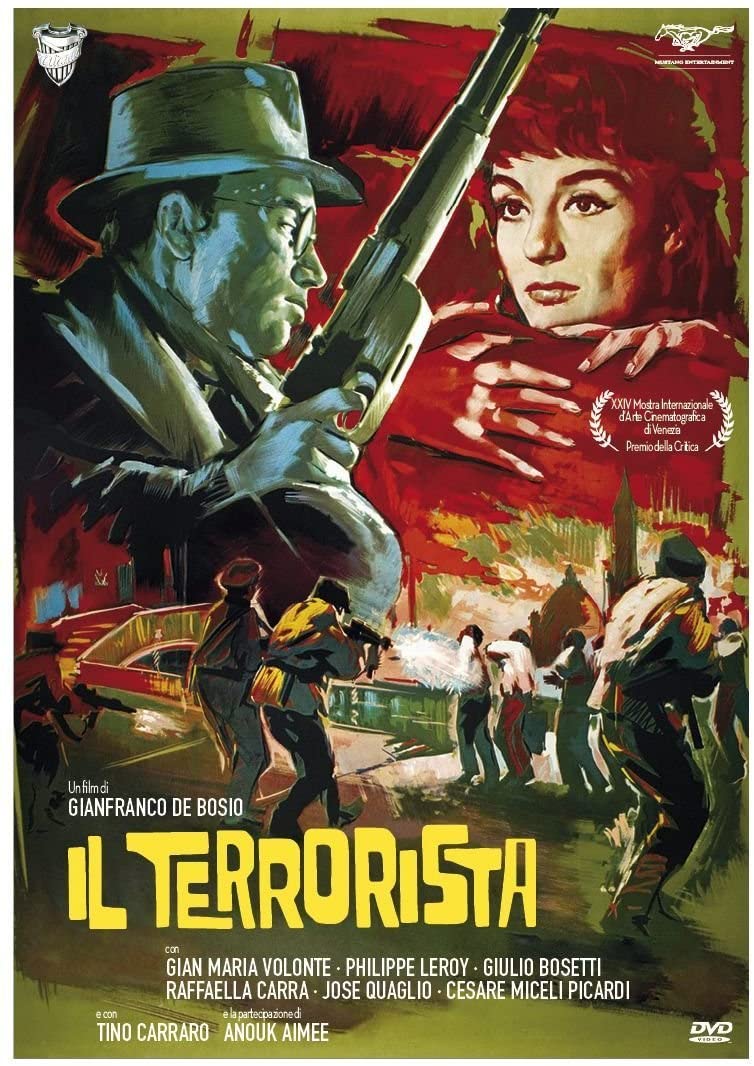A never before seen, uncomfortable and fascinating look at the Italian Resistance
Gianfranco De Bosio and Luigi Squarzina, two leading figures of 20th century Italian theatre, renounce easy triumphalism to dig deeper into history with an expressive and unique style
Another reliably great performance from Gian Maria Volonté, alongside a very young Raffaella Carrà
For many reasons this film is an uncomfortable work. And for all the same reasons, it is also a fascinating work. Il terrorista could be labelled a film about the Italian Resistance, however it is a work that obstinately shuns any traditional classification. The Resistance depicted in the film refuses any temptation to become epic, rhetorical, or triumphal in nature: the struggle against the forces of Nazi-Fascism is not shown as a unified movement, but as a scenario of great tension between anarchist guerrilla actions and political calculations. The partisan activities in the film take place against the backdrop of republican Venice occupied by Fascist forces (a seldom looked at chapter in Italian cinema), wonderfully reconstructed to ensure a sufficiently grey and suffocating atmosphere. New territory is explored in the fight against dictatorship through the constant probing of the notion of a unified resistance, and is brought into unexpected terrain by the expressive and unique style. Ex-partisan Gianfranco De Bosio, one of the most prestigious name in Italian theatre, rarely worked in the cinema (this was his directorial debut). He co-wrote the screenplay with Luigi Squarzina, another undisputed star of 20th century theatre. Beside the ever-reliable Gian Maria Volonté, is Raffaella Carrà, who had recently graduated from the Italian National Film School.
A never before seen, uncomfortable and fascinating look at the Italian Resistance
Gianfranco De Bosio and Luigi Squarzina, two leading figures of 20th century Italian theatre, renounce easy triumphalism to dig deeper into history with an expressive and unique style
Another reliably great performance from Gian Maria Volonté, alongside a very young Raffaella Carrà
For many reasons this film is an uncomfortable work. And for all the same reasons, it is also a fascinating work. Il terrorista could be labelled a film about the Italian Resistance, however it is a work that obstinately shuns any traditional classification. The Resistance depicted in the film refuses any temptation to become epic, rhetorical, or triumphal in nature: the struggle against the forces of Nazi-Fascism is not shown as a unified movement, but as a scenario of great tension between anarchist guerrilla actions and political calculations. The partisan activities in the film take place against the backdrop of republican Venice occupied by Fascist forces (a seldom looked at chapter in Italian cinema), wonderfully reconstructed to ensure a sufficiently grey and suffocating atmosphere. New territory is explored in the fight against dictatorship through the constant probing of the notion of a unified resistance, and is brought into unexpected terrain by the expressive and unique style. Ex-partisan Gianfranco De Bosio, one of the most prestigious name in Italian theatre, rarely worked in the cinema (this was his directorial debut). He co-wrote the screenplay with Luigi Squarzina, another undisputed star of 20th century theatre. Beside the ever-reliable Gian Maria Volonté, is Raffaella Carrà, who had recently graduated from the Italian National Film School.
